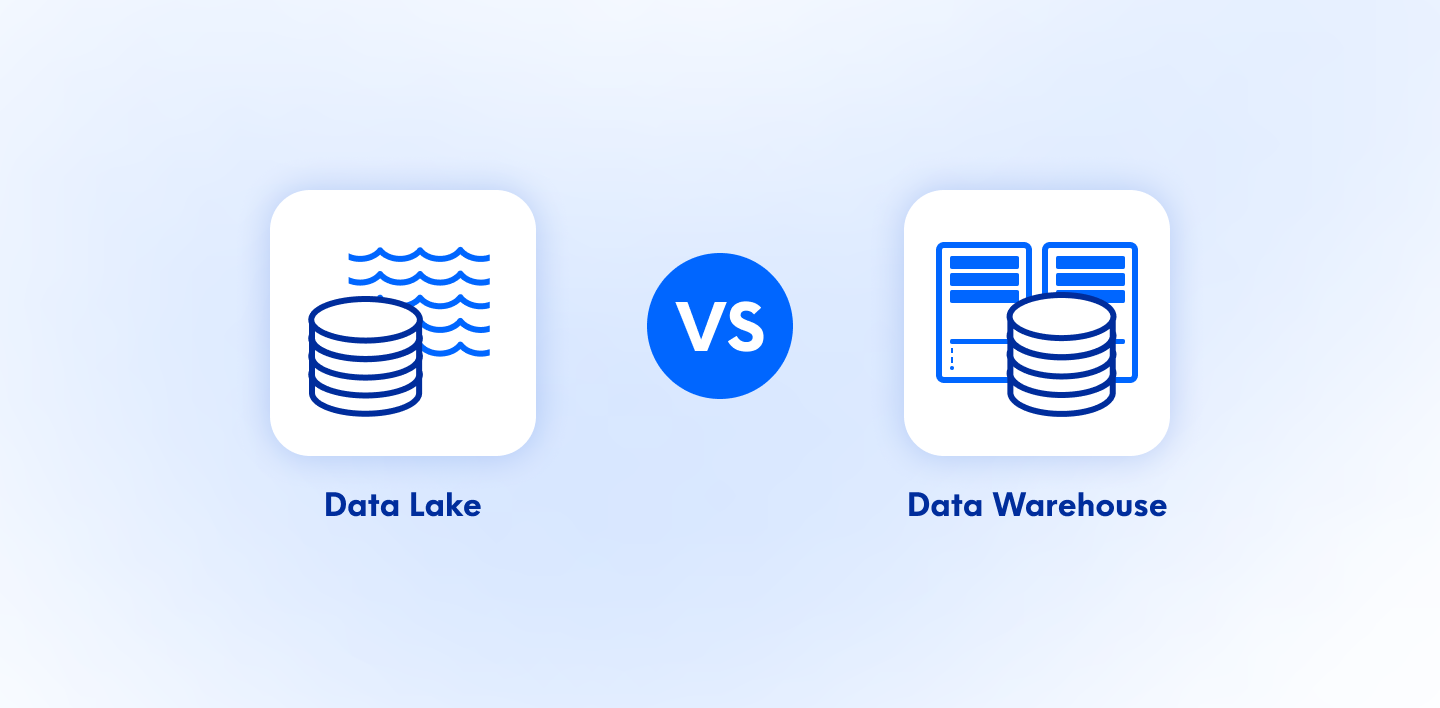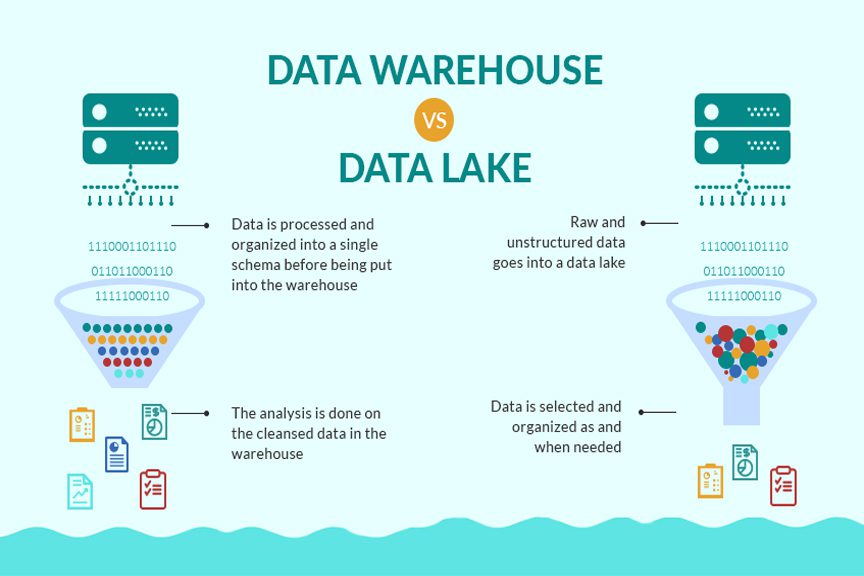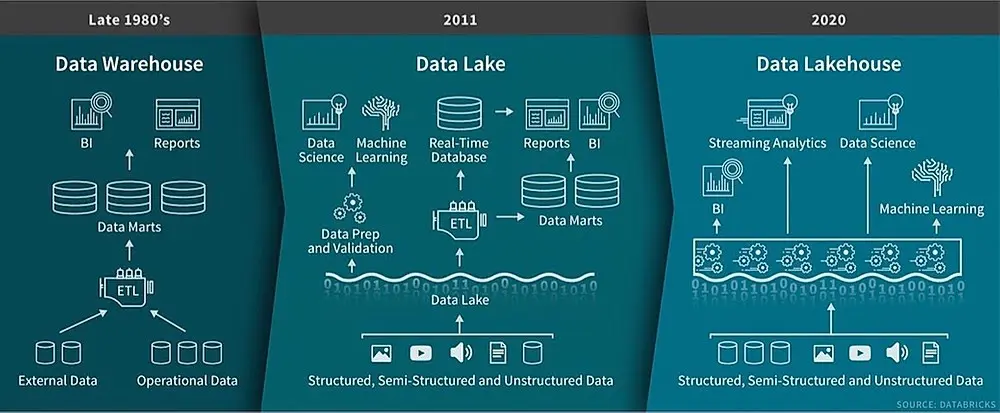Exploring the Benefits of a Data Lake - Why Not Settle For A Data Warehouse?
Unlocking the benefits of data lakes could transform your business's analytical capabilities - let us explain why choosing a data lake over a warehouse pays off, with details in this post.

Data lakes have the potential to provide an unprecedented and powerful level of data processing for businesses. By leveraging the massive scalability and cost savings of data lake systems, companies can unlock a wide range of benefits compared to using traditional data warehouses. In this article, we'll discuss why data lakes are preferable to warehouses and explain their many advantages.
What is a Data Lake and Why Use One?
A data lake stores and processes massive sets of raw, unstructured data. Data is stored in its original form for downstream varieties in analytics and machine learning applications. From B2B marketing to inventory forecasting, data lakes are a powerful asset for businesses looking to gain insights from vast amounts of data. Data lakes offer flexibility, scalability, cost-efficiency, and support for advanced analytics—all of which make them preferable to traditional data warehouses.
Data warehouses, on the other hand, are typically used for business intelligence or operational insights. As a result, they only include structured data modeled by a database administrator to support predefined queries. Moreover, data warehouses often require intricate ETL processes in order to migrate and prepare data, resulting in siloed systems with limited scalability and performance. In contrast, data lakes leverage Hadoop-based distributed computing which allows businesses to store a large variety of data types as is—without having to model it—and query relevant information quickly and efficiently. The result: some of the most powerful analytical solutions that modern companies need to drive growth and stay ahead of the competition.

What makes data lakes the preferred choice of modern-day enterprises is its unmatched scalability and cost-effectiveness. As a unified platform, it can store structured and unstructured data from all kinds of sources, such as server logs, Ingesting this raw data does not require any upfront transformations or ETL processes – reducing both capital and operational costs. Therefore, businesses are enabled to explore vast amounts of unrestricted datasets without having to worry about capacity limitations or costly infrastructure upgrades. Additionally, Apache Hadoop uses parallel processing to enable high performance analytics on massive volumes of data in real time - allowing businesses to discover insightful patterns they can put into action quickly. For this reason, data lakes have become an indispensable resource for many companies looking to gain competitive lean-hop ahead by leveraging actionable insights from their data assets.
The Benefits of Using a Data Lake.
One challenge associated with data lakes is that they contain both structured and unstructured data. This requires businesses to dedicate additional resources to ensure the quality of the data, as well as create systems that integrate seamlessly when analyzing different datasets. Additionally, not every organization has the resources and capabilities to build a data lake on their own, which may require third-party tools or offsite services. For organizations considering a data lake, it’s important to understand their own needs and any potential limitations in terms of technology or personnel that may arise while building and managing a comprehensive analytics solution.

Despite the challenges in setting up a data lake, this approach has several advantages over using a traditional data warehouse. With a data lake, organizations can store massive volumes of unstructured and structured data for near real-time analysis at lower costs. Businesses can gain insights from stale, hard-to-process datasets that are stored without any predefined purpose or structure saving time and money. Data lakes also enable organizations to quickly access and analyze multiple sources of information resulting in better decision making capabilities.
Moving From Data Warehouse to Data Lake Design Considerations.
When moving from a data warehouse to a data lake, there are many factors to consider in terms of design. Organizations need to consider not just the type and quality of data that will be stored in their lake, but also the infrastructure needed to ensure optimal performance and avoid potential security issues. Additionally, organizations must decide whether they want to use cloud-based or self-hosted options, and how they’ll create an accessible user interface for analysts who can easily unlock value from their data. Carefully planning each step of the design process can help businesses put together an effective, efficient data lake system that meets their needs.
A data lake is more flexible than a data warehouse because it can store structured, semi-structured, and unstructured data from multiple sources. Data lakes are also scalable, making queries faster and more accurate and reducing the time for data preparation. However, any organization looking to move towards a data lake system must take into consideration security requirements and the infrastructure needed to avoid potential risks. When assessing the design of their data lake, businesses should incorporate considerations such as which platform they want to use or how deep they want to dive into leveraging their existing investments in big data technology. Developing a strategy that matches their analytic needs is essential for success when moving from data warehouse to data lake design.
Choosing the Right Tools for Your Data Lake Implementation Plan.
One of the most critical elements in putting together a successful data lake is selecting the right analytical tools. With an abundance of options available, organizations must carefully consider which ones are best suited to their needs. When choosing which tools to use, it’s important for organizations to consider factors like cost-effectiveness, ability to plug into existing systems, scalability, ease of use and security. Utilizing the right tools and technology can boost analytics capabilities and help maximize the value from their data lake investments.
A data lake is a large data storage repository that holds raw, unstructured or semi-structured data. Data lakes are often created for the purpose of storing and analyzing data that does not fit traditional databases, such as sensor logging data, web analytics, ecommerce activity and server logs. The benefits of using a data lake over a traditional data warehouse include cost savings, greater scalability and faster access to more diverse datasets. Moreover, having both traditional datawarehouse solutions at one’s disposal offers more flexibility when dealing with complex analytics frameworks and big data workloads.
We can help
The knowledgeable members of the ExterNetworks team can assist you in achieving success and excelling in the pursuit of your next major endeavor.




